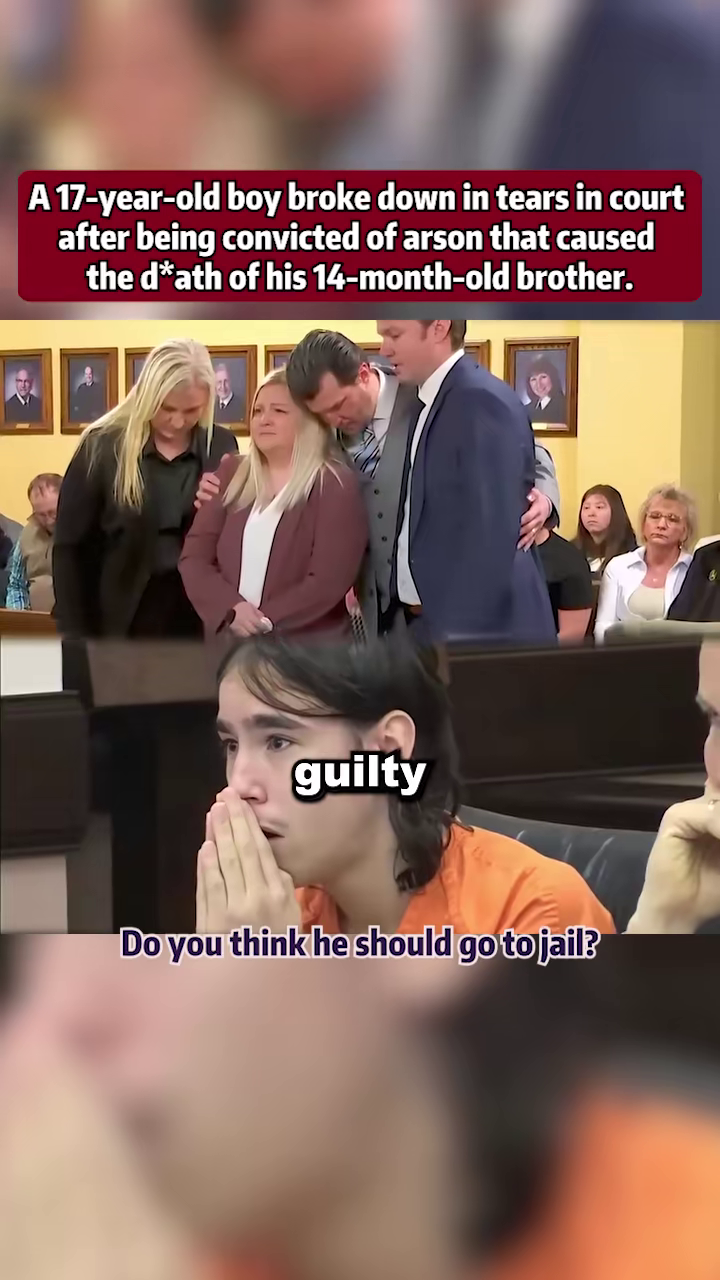In March 2015, a fire broke out in a Rock Hill, South Carolina home, claiming the life of 14-month-old Joshua Hill, leaving the community and family members reeling. At the center of the tragedy was Jacob Morgan, a 17-year-old teen who would later face criminal charges for involuntary manslaughter, arson, and neglect.
This case drew national attention due to the age of the defendant, the devastating loss of a child, and the dramatic courtroom proceedings. The events surrounding the fire raise questions about family dynamics, juvenile accountability, and mental health challenges.
The Incident: A Fire That Took a Life
According to reports and court documents:
-
The fire occurred inside the family home in March 2015.
-
Joshua Hill, just 14 months old, tragically died as a result of the fire.
-
The exact circumstances were disputed: Jacob’s family maintained he was asleep when the fire began or ran outside after noticing it.
Neighbors and officials described the scene as chaotic and heart-wrenching, with first responders arriving to find a family in shock and a toddler tragically lost.
Background on Jacob Morgan
Jacob Morgan, at the time 17, had been diagnosed with autism and bipolar disorder. His family insisted he was innocent and highlighted:
-
Claims that he was sleeping during the fire or fled the scene after seeing it.
-
Allegations that interrogators had pressured him aggressively, which may have contributed to inconsistent statements.
-
His history of fascination with fire, which was noted during investigations but not definitively linked to intentional malice.
The defense argued that Jacob’s mental health and developmental challenges played a critical role in the events leading to the tragedy.
Courtroom Drama: Emotions Run High
During the trial, the courtroom became the center of a highly emotional scene:
-
Jacob broke down in tears as the judge found probable cause for the charges to proceed.
-
Family members were seen visibly emotional, reflecting both grief for Joshua and concern for Jacob.
-
Media coverage emphasized the tension between accusation, defense claims, and the raw emotions of a grieving family.
The dramatic courtroom scenes captured the complexity of prosecuting juvenile cases that involve tragic outcomes and conflicting accounts.
Prosecution’s Argument: Doubts and Evidence
The prosecution maintained that:
-
Jacob may have deliberately set the fire.
-
He did not call 911, which raised suspicion regarding his responsibility.
-
His obsession with fire indicated a potential risk of intentional harm.
Despite these concerns, evidence was weighed alongside Jacob’s mental health diagnoses and his young age, leading to careful consideration of the charges.
Defense Perspective: Mental Health and Family Claims
Jacob’s defense team and family emphasized:
-
His autism and bipolar disorder, which could affect judgment and impulse control.
-
The claim that he ran outside after noticing the fire, rather than intentionally starting it.
-
That interrogation methods had been overly aggressive, potentially influencing his statements.
These factors played a role in negotiating the plea and influenced the eventual sentencing outcome.
Conviction and Sentence
In 2016, Jacob Morgan pleaded guilty to:
-
Involuntary manslaughter
-
Third-degree arson
-
Unlawful neglect of a child
He was sentenced to:
-
15 years in prison
-
5 years of probation
Under South Carolina law, his non-violent crime designation allowed him to serve a reduced sentence, leading to his release after seven years, projected in December 2022.
Family Impact: Grief, Guilt, and Reflection
The death of Joshua Hill left a profound mark on the family:
-
Parents, siblings, and extended family faced grief and conflicting emotions.
-
Jacob’s parents expressed relief that he would receive mental health support in juvenile facilities, but also deep sorrow for the loss of their youngest child.
-
The community grappled with the tragedy, emphasizing the importance of fire safety and child supervision.
Psychological Insights: Understanding the Teen Mind
Experts noted that juvenile offenders, especially those with mental health diagnoses, present unique challenges:
-
Teens with autism or bipolar disorder may struggle with impulse control and situational judgment.
-
Obsessions or fascinations, such as Jacob’s with fire, require careful monitoring to prevent escalation.
-
Early intervention, therapy, and family guidance are critical in preventing tragic outcomes.
Jacob’s case underscores the delicate balance between accountability and rehabilitation in the juvenile justice system.
Public and Media Reaction
The story of Jacob Morgan and Joshua Hill sparked intense discussion:
-
Some questioned whether Jacob’s age and mental health justified a lighter sentence.
-
Others debated whether juvenile facilities adequately address underlying behavioral issues.
-
Social media and news outlets focused on the tragic loss of an innocent child, emphasizing the importance of family safety and fire prevention awareness.
Lessons Learned
The Jacob Morgan case highlights several crucial lessons:
-
Mental health support is essential: Teens with developmental challenges need ongoing monitoring and counseling.
-
Early intervention matters: Behavioral signs, especially obsessive tendencies, should be addressed before tragedy strikes.
-
Family supervision and safety: Homes with children, especially toddlers, require vigilant safety measures.
-
Juvenile justice must balance rehabilitation and accountability: Sentencing should consider both the impact of mental health and the severity of the crime.
Conclusion: A Tragic Fire and a Family Forever Changed
The death of 14-month-old Joshua Hill in a house fire set by 17-year-old Jacob Morgan remains a tragic chapter in South Carolina’s juvenile crime history.
The case highlights:
-
The fragility of family life and the devastating consequences of in-home accidents or impulsive actions.
-
The challenges of handling juvenile offenders with mental health diagnoses in the criminal justice system.
-
The lasting impact on families, communities, and courts tasked with balancing justice and compassion.
Jacob’s sentence, combined with his early release, leaves a complex legacy — one that serves as a cautionary tale about fire safety, teen behavioral challenges, and the long-term consequences of tragedy.

